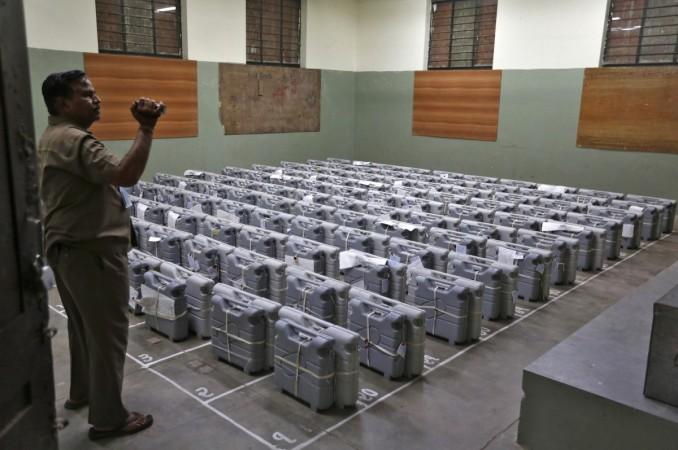
The Election Commission of India (EC) will reportedly write to the Central Board of Direct Taxes (CBDT) to inform them about its decision to delist around 200 political parties. A communiqué listing the parties will be sent to the board for action over "the next few days."
The EC suspects that several of these political parties that have not contested any election since 2005, and exist mostly on paper, could be money-laundering operations.
"This is just the beginning. We expect to weed out all non-serious parties. There are many that don't even bother to file Income Tax returns or, if they do, they never send a copy to us," a source was quoted by the Indian Express as saying.
According to the report, the EC hopes that the CBDT will have a "close look" at the financial affairs of all these political parties since they can no longer enjoy any tax benefits that other registered political parties usually enjoy. A clear message should be sent that forming a political party for "turning black money into white" is no longer a good idea.
The EC decided to act on its powers under Article 324 of the Constitution, which empowers it to "control the conduct of all elections", when successive governments did not act on the commission's proposal to change relevant laws so that there is transparency in the flow of funds to political parties and its expenditure.
The existing laws do not permit the EC to deregister a political party that has already been recognised.
According to the data available with the EC, there are seven National Political Parties, 58 State Parties and a whopping 1,786 Registered Unrecognised Parties.
In 2004, the then Chief Election Commissioner TS Krishna Murthy had written to then Prime Minister regarding the problem of funding. He recommended that political parties be asked by law to keep details of all donors even if the donation amount is less than Rs 20,000, the IE reported.
The existing laws state that political parties need to file their income-tax returns with the details of all donors who have contributed over Rs 20,000 to the party and send the report to the EC. But most parties declare that they received funds from anonymous donors who donated less than Rs 20,000 each, thereby getting away with not naming the source of the donations.
Revenue Secretary Hasmukh Adhia had last week announced that political parties will be exempted from income tax scrutiny upon depositing the banned notes only if the donations received are below Rs 20,000. When the announcement received flak from the public, Finance Minister Arun Jaitley clarified that the EC had only reiterated the existing law and that the government had not made any changes to the law.
However, despite being in power for over two-and-a-half years, the Centre has not acted upon the EC's recommendation to make it compulsory for political parties to disclose donations less than Rs 20,000 to the commission.
The Centre has amended the Foreign Contributions (Regulation) Act, 1976, allowing political parties to accept donations from foreign entities, including companies with foreign share-holding, the IE reported.
"Since neither the previous government nor the present one acted on our recommendations about changing relevant provisions of the law to make donations to political parties more transparent, the EC acted on its own, using its inherent powers. We are sending the names of the delisted political parties to the CBDT. It is for them to act now," an EC source told the daily.













!['He is done with the team now' : Angry Virat Kohli slams the bat, kicks the ground, yells at RCB team as SRH smashes runs [reactions]](https://data1.ibtimes.co.in/en/full/796956/he-done-team-now-angry-virat-kohli-slams-bat-kicks-ground-yells-rcb-team-srh-smashes.jpg?w=220&h=138)



